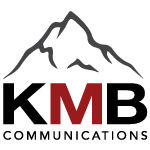The reality is that anything your company is posting, publishing, or promoting must be catchy, concise, and clever if you want it to get viewed, read, and engaged with. That is no small task. It takes time and the right resources, as well as some budget to increase the reach of your marketing. Few commit to this and that is why most suffer from minimal marketing engagement and low or zero ROI.
To make your marketing “sticky” and actionable, the words that are chosen and the images selected must resonate with all the different types of people you want to connect with. One message will never fit them all, so don’t try to convince yourself or your leadership team that it will work. It doesn’t work and it isn’t effective — it merely checks a box. Don’t get caught in this trap!
By creating “personas” for each of the segments of your target audience, you will not only better understand how to speak their language but also — and more importantly — get them to respond. Once people engage with and start responding to your messaging it is much easier to get them into a funnel your team can work on to convert leads to prospects to clients, trade partners, or employees. That, of course, is the goal.
To be clear, personas are NOT the same as demographic profiles. Demographic profiles help create groups of audience member types based on common interests or experience. Personas provide key differentiators for each segment that will help you create captivating messaging and imagery that caters to their unique needs and desires. Identifying and understanding every functional aspect of your target audiences and what makes each of them tick is critical to maximizing the value and impact of your marketing efforts.
A Persona Identification Exercise establishes how many pieces of the PIE you need to serve to ensure your company is maximizing its marketing and outreach efforts. Don’t worry, a PIE can be easy to enjoy and doesn’t take a lot of expertise. Simply gather your leadership team and stakeholders and ask each one to share the different types of people they feel your company serves now and how accommodating the needs of others might show promise. Don’t judge anything at this point. Just capture the input, talk it through, and strike any the team determines aren’t right, timely, or obtainable in the near-ish future.
The next step is to take each piece of your PIE and sort it based on similarities, then name each piece (or segment) so it is relatable to you and your team. Once you’ve done this, layer in what’s known about each persona and how your company can best cater to what they want or need, even if they don’t know yet that they want or need it. After the first draft, you will see that the people, personalities, and personal and professional interests you need to cater to are incredibly diverse and driven by vastly different sentiments or realities.
For example, an integration firm may find that they have a young professional audience who are starting families and leading busy lives, as well as middle-aged professionals without kids in the home who like to entertain and often provide their homes as a VRBO or Airbnb, and also high net worth individuals, business owners, or older adults or those with disabilities or injuries who need technology that will help them live comfortably at home for a much longer time. Stop kidding yourself now. There is no way that one message will serve them all.
Through repeated attempts and copyedits — which takes time but is well worth it — you will soon establish a voice, tone, phrasing, and relatable imagery that will suit each persona on your list. Scrutinize the language, punctuation, and grammar used to be sure it matches the target audience. Build a library of visual assets that will be attractive to each persona, so you never run out of compelling images to pair with captivating content. Don’t forget to update your persona list with frequency, as a stale list is a total waste of valuable time and effort. Don’t fall into that rut!
Need help making your PIE happen or just need to talk things through to feel more confident with the concept of creating targeted audiences and catering to their needs? Drop me a line at katye@kmbcomm.com. The KMB Comms team is here to help!
Original article can be found at: https://www.residentialsystems.com/features/secrets-of-success/how-well-do-you-know-your-audience/
—
A 25+ veteran of the residential tech & AV integration industries, Katye McGregor Bennett is the CEO of KMB Communications, a boutique communications firm that anchors the intersection of technology + design by connecting brands, buyers, and prospective audiences through creating compelling content and conversation that elevates and amplifies. In addition to co-hosting Design Uncut with Veronika Miller, Katye hosts two popular podcasts, Connecting Tech+ Design and AV Trade Talk. She is part of the DesignHounds influencer group and also serves on the NAHB Custom Technology Work Group, is a strategic advisor in the CEDIA, HTA, and AVIXA communities, a frequent contributor to Residential Systems, Connected Design and founder of the AV Yoga group.
Illustration by RedVector/Getty Images


![Mastering [Wireless] Connectivity: Wireless Connectivity: Why Behind Every Great Wi-Fi Experience There is Always a Great Wired Network [Sponsored by Kordz]](https://kmbcomm.com/wp-content/uploads/2024/08/AVTT_Thumbnail_V3-1-1080x675.jpg)




